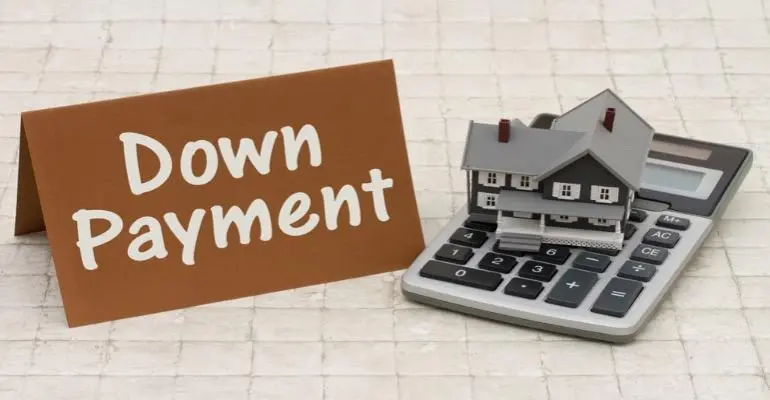Buying a plot in Kolkata is a significant investment and a dream for many. Whether you’re looking for premium villa plots in Newtown or considering plot options that bring modern amenities to your doorstep, proper financial planning is essential.
We at Sri Sai Ujaan Nagar Township Project don’t just offer top-of-the-line residential plots but also guide our potential buyers through every step of the way. That’s why, in this blog, we discuss practical advice on budgeting and financing options to help you make an informed decision and turn your land ownership dream into a reality.
Table of Contents
ToggleFinancial Planning Tips to Consider When Buying a Residential Plot in Kolkata
Here’s how you can secure your dream plot in Kolkata.
1. Determine Your Budget
Setting a budget is a crucial first step in your financial planning, especially when it comes to buying a plot. You’ll need to take a hard look at your current financial planning scenario. Consider your savings, monthly income, and any ongoing financial commitments.

Don’t just focus on the sticker price of the plot; consider additional costs such as property taxes, legal fees, and the expenses that come with developing the land. Having a detailed budget will help you stay financially comfortable and avoid overextending yourself.
Creating a detailed budget also makes it easier when it comes time to talk to lenders or financial advisors. You’ll have a clear understanding of your limits and can make smarter and stress-free decisions. Mk
2. Down Payment

When you decide to buy a plot, be prepared to make a down payment. At Sri Sai Ujaan Nagar Township, this upfront cost can range from 20% to 30% of the total purchase price.
Generally, the larger your down payment, the better the financing terms you might secure, such as lower interest rates. So, it’s really beneficial to save as much as possible for this initial payment.
A sizable down payment not only helps you in securing favorable loan terms but also reduces your long-term financial burden. It can significantly lower your monthly payments and the total interest you’ll have to pay over the life of your loan.
With a well-planned down payment, you can ease financial pressure and make your land purchase a more manageable investment in the long run.
3. Explore Financing Options

When it comes to financing your plot purchase, you have several ways to explore. One option is a mortgage loan specifically tailored for land purchases. These loans often come with shorter terms and slightly higher interest rates compared to traditional home mortgages.
Shopping around for lenders and comparing their terms will help you find one that best suits your needs.
Another option is obtaining a personal loan, which can be a bit more flexible in terms of approval but typically comes with higher interest rates. This route is often faster and requires less stringent qualifications.
You might also want to consider owner financing, where the seller finances the purchase and you make payments directly to them. This can be advantageous if traditional financing is hard to secure. However, make sure to negotiate the terms carefully to avoid complications.
4. Plan for Additional Costs
Buying a plot involves more than just the upfront purchase cost. You need to be prepared for a variety of additional expenses.
For example, property taxes can differ greatly depending on the location of the land. Make sure to research these rates and factor them into your budget to avoid any surprises.
Legal fees are another significant component. Hiring an attorney to review your contracts and ensure everything is legally sound can save you from unforeseen issues down the road. Don’t forget about survey costs, which determine the exact boundaries of your land and check for any potential disputes.
Utilities and infrastructure costs are also crucial, as you’ll need to connect essential services like water and electricity. Budgeting for these from the get-go will save you stress and ensure that your plot becomes usable as soon as possible.
5. Emergency Fund

An emergency fund is a must-have, even when you’re diligently planning your land purchase. This fund acts as a financial buffer for unexpected expenses like urgent repairs or sudden medical bills.
We all know life can throw unexpected challenges our way, and having an emergency fund ensures you’re prepared to handle those surprises without jeopardizing your financial stability.
Maintaining an emergency fund is about peace of mind and financial security. It provides a safety net that allows you to manage unforeseen challenges without needing to dip into other financial planning resources. Even when you’re fully engrossed in budgeting for a new plot, don’t overlook the importance of setting aside some money for emergencies.
6. Credit Score and Financial Health

A good credit score is an investment in foolproof financial planning. So, before you start applying for loans, take a closer look at your credit score and overall financial health. Your credit score plays a significant role in determining the kind of loan terms you’ll be offered.
A higher score can lead to better interest rates and more favorable repayment terms. Therefore, it’s essential to have a strong credit history and manageable debt levels.
Improving your credit score isn’t something you can do overnight, but it’s well worth the effort. Start by paying down existing debts and ensuring all your bills are paid on time. Small steps can lead to a significant impact, making it easier and less expensive for you to secure financing for your land purchase.
7. Shop Around for Financing
Never settle for the first financing option that comes your way. Different lenders offer varying terms, interest rates, and fees, so it’s wise to shop around. Getting quotes from multiple lenders allows you to compare your options and find a deal that best aligns with your financial goals and budget.
Taking the time to explore different financing options can save you a lot of money over the life of your loan. Be sure to scrutinize all aspects, from interest rates to any hidden fees.
The goal is to make an informed decision that not only feels right in the short term but also stands the test of time as you move forward with your land investment.
8. Factor in Future Costs
When budgeting for your land purchase, don’t just stop at the immediate costs. Think about what it will take to maintain and possibly develop the land in the future.
Ongoing property taxes, regular maintenance, and any future investments, such as building a home or other structures, should all be part of your financial plan.
Taking a long-term view helps you maintain financial stability and ensures you’re prepared for whatever comes next. Foreseeing and budgeting for future expenses will help you handle them when they arise. This will make your land purchase a more sustainable investment.
This will lay the groundwork for a more financially secure future.
9. Understand Zoning Laws and Regulations

Before you buy a piece of land, it’s really important to get a good grasp of the local zoning laws and regulations. Knowing these laws inside and out will help you buy a plot that’s not only perfect for your needs but also free from unforeseen complications down the road.
These rules determine how you can use the land, whether you’ll build a house, open a business, start a farm, or something else!
They also cover details like building heights, how close you can build to the property line, and even what kind of buildings are allowed. Ignoring regulations can have serious consequences. You could face fines or even be forced to demolish your work.
It’s a smart move to dive into the local government’s zoning maps or resources online to get a sense of what’s what.
Real estate agents and attorneys can also be a great help in deciphering all of this legal jargon and making sure you don’t miss anything crucial.
10. Evaluate the Plot’s Resale Value

Even if you’re planning to build your dream home and stay put, thinking about the resale value of your plot is a wise move.
The future value of your land can depend on various factors like its location, the overall development of the neighborhood, and infrastructure improvements. Places that are on the verge of growth generally offer better potential for appreciation, giving you a great return on your investment if you ever decide to sell.
Taking some time to do market research can help you understand how the value of the land might change over time. Real estate agents and market analysts can offer useful insights, including historical price trends and upcoming projects that might impact the area.
Understanding the resale potential can guide you to make a better choice between similar plots, aligning not just with your current needs but also securing your financial future in the process.
11. Plan for Home Construction Financing

If you’re planning to build a home on the land you’re buying, figuring out how to finance the construction is a key step. Planning your finances carefully can keep your project on track and prevent costly delays, ultimately saving you time and money.
Home construction loans are different from regular home mortgages. They’re usually funded in stages corresponding to the various phases of building. Getting a loan approval can be complex. A detailed review of your construction plans is required.
It’s worth looking into different lenders who offer these kinds of loans and understanding their terms. Things like interest rates, down payments, and repayment schedules can vary widely.
Sitting down with a financial advisor can help you sift through options. A financial advisor can help you choose a loan that fits your budget and timeline.
12. Consider Environmental Factors
The environment around your plot can make a big difference in whether it’s a good spot for building and how much work it’ll take to make it ready. Factors such as soil quality, drainage, and the risk of natural disasters like floods or landslides can impact your plans.
Getting a detailed environmental assessment can highlight potential issues before you get too far down the road. Hiring experts to check out these environmental factors can also be a lifesaver.
A geotechnical engineer, for example, can tell you about the soil’s suitability, while a hydrologist can assess water drainage and flood risks.
Knowing these factors ahead of time ensures your land is safe for building. This knowledge helps you plan your budget more accurately, avoiding unexpected costs.
13. Seek Professional Advice

Getting expert advice while doing your financial planning can make a remarkable difference when you’re looking to buy land. Real estate agents, financial advisors, and property lawyers each bring their own set of skills and knowledge to the table.
Real estate agents can guide you through the local market. They can also help you find properties that match your needs and negotiate on your behalf. Financial planning advisors can help you set up a solid financial plan. They take into account all the costs and financing options available.
In addition, property lawyers are crucial for handling the legal side of things. They can review contracts. They can also help you navigate legal hurdles. Their expertise can take a lot of the stress out of the process and make sure you’re making informed decisions.
While leaning on these professionals, you’ll be better equipped to make the right choice, minimizing the risks involved when you buy a plot.
Sri Sai Ujaan Nagar Township Project – Your Trusted Partner
You’re looking for residential plots in Rajarhat, Newtown. Partnering with a reputable developer like Sri Sai Ujaan Nagar Township can be beneficial.
We provide valuable insights into available plots. We also offer financing planning options tailored to your unique needs.
Contact us today for a free site visit!

